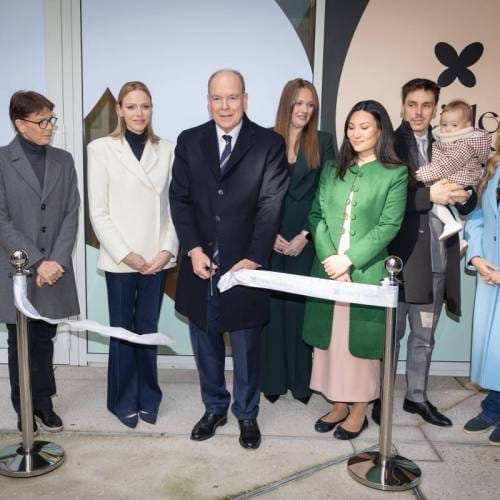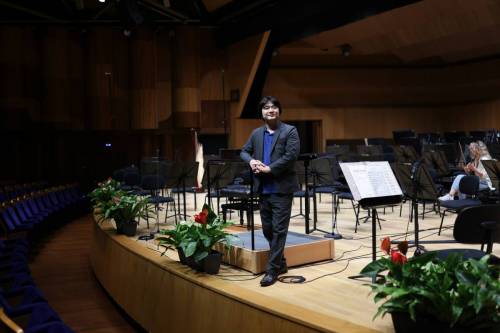As more and more people consider moving to the stunning haven of Monaco, understanding the local legal landscape becomes essential. With its blend of luxury and culture, Monaco offers an attractive lifestyle, but moving comes with a unique set of legal challenges. In our effort to create a helpful guide for those looking to relocate, I spoke with Christine Pasquier-Ciulla, one of the founding partners of CMS Monaco and co-head of the Private Clients team, along with Regina Griciuc, Counsel in the Private Clients team and fluent in Russian, English, and French. They were generous in sharing their expertise, providing insights that can make the transition smoother for newcomers.
Christine and Regina clarify the implications of relocation—from estate planning to family law—offering practical advice to help individuals and families manage their financial and personal affairs effectively. This conversation serves as a valuable guide for HelloMonaco readers and anyone considering making Monaco their new home.
Managing Financial and Personal Affairs
HM: Christine and Regina, what should people moving to Monaco know about managing their financial and personal affairs?
Christine Pasquier-Ciulla: Relocation to Monaco has an important impact on personal status. A foreign national who holds a Monaco resident card is considered domiciled in Monaco, unless proven otherwise. Domicile, which is defined by Monegasque law as the place where a person’s main establishment is, is an important factor in determining jurisdiction and the applicable laws for private client matters such as family law, inheritance law, and the protection of minors and the elderly. Consequently, moving to Monaco has significant implications that individuals should be aware of when managing their assets and personal affairs.
Common Legal Mistakes
HM: What common mistakes do newcomers to Monaco make with their legal matters?
Christine: Wealthy individuals are attracted by the security, the Mediterranean climate, quality of life, world-class education and medical services, and the favourable taxation Monaco offers its residents. However, what many tend to disregard is that moving to Monaco also means getting used to its legal culture and rules.
Regina: Unfortunately, quite often, it is only when faced with a legal issue—be it a separation or divorce, child custody, succession dispute, or incapacity—that people realize the civil law implications that relocation triggers. The key to avoiding unexpected issues is to seek professional legal advice prior to or upon relocation.
Impact on Families
HM: How does the law in Monaco impact families who are relocating, particularly in terms of family arrangements?
Christine: Monaco’s courts have jurisdiction to rule on all personal matters concerning Monaco residents. For example, the Monaco courts will handle the divorce of a married couple living in Monaco, determine child custody arrangements for a child residing in Monaco, rule on changes to the marital property regime for foreign spouses living in Monaco, and deal with the estate of a Monaco resident.
Regina: With some exceptions, Monaco’s courts generally apply Monegasque law. This makes it important to seek legal advice to ensure the validity and enforceability, from a Monegasque law perspective, of any marital planning arrangements (such as prenuptial or postnuptial agreements made in a foreign country) and estate planning documents.
Estate Planning for High-Net-Worth Individuals
HM: Estate planning is a crucial topic for high-net-worth individuals. What steps should private individuals relocating to Monaco undertake to ensure effective wealth transmission?
Regina: From an estate planning standpoint, moving to Monaco has major consequences. The private international law of Monaco will determine the jurisdiction and laws that apply to the estate of a foreign resident. Therefore, it’s important to prepare for any legal issues by making a will or reviewing any existing estate plans to ensure they are valid and effective according to Monaco’s laws.
Christine: Furthermore, as part of a wider reflection on estate planning, in light of the challenges of today’s aging society and the need to protect vulnerable adults, it is also important to consider advance arrangements for the event of loss of capacity by making a lasting power of attorney to ensure one’s protection, both in terms of personal welfare and asset management. We therefore strongly recommend our clients to simultaneously consider matrimonial, succession, and incapacity planning as part of a comprehensive approach to wealth planning to ensure better legal predictability and to anticipate future issues or disputes.

Advantages of Monaco for Wealthy Individuals
HM: What advantages does Monaco offer wealthy individuals in terms of taxes and asset protection?
Christine: Beyond the exceptional quality of life, Monaco offers its residents favourable taxation, political stability, a robust regulatory environment, and effective legal tools for wealth planning and asset management.
Regina: We often hear that one of the primary reasons why high-net-worth individuals choose to settle in Monaco is its unparalleled security and safety.
Common Private Client Cases
HM: What are the most common cases in Monaco in the private client area?
Regina: Most private client cases are of a personal or family nature. Key areas include divorces and related maintenance and financial compensation claims, child custody and visitation rights, succession disputes, and matters related to the protection of vulnerable adults.
Christine: Due to the private and sensitive nature of such disputes, they tend to be lengthy and acrimonious and sometimes drag through generations, which is particularly unfortunate and destructive. In our experience, and irrespective of the underlying causes, well-established family governance significantly mitigates the risks of disruptive and costly disputes.
Cultural Differences and Relocation
HM: How do cultural differences affect the experience of moving to Monaco?
Christine: Legal culture varies greatly between different countries and legal systems, so it’s important to understand these differences when relocating. A clear example is how testamentary freedom is viewed. Monaco is a civil law jurisdiction, which has strict inheritance rules. According to Monegasque law, children—regardless of their age—have a legal right to a portion of their parents’ estate, known as forced heirship rights. This means parents cannot fully disinherit their children. However, the surviving spouse can be excluded from the will. In contrast, common law jurisdictions allow for complete freedom in making a will. Additionally, there are cultural differences in how people view estate planning. In common law countries, people are usually comfortable using tools like wills or trusts, but in other cultures, making a will can be less common due to fears or reluctance.
Regina: Another example of cultural differences across legal systems is with respect to matrimonial planning. In certain countries, prenuptial agreements are common practice, while in others, they are less common. Discussing finances prior to marriage is indeed not very romantic, but it is necessary, and we have witnessed a spike in nuptial agreements in recent years. There are also significant differences among jurisdictions in terms of matrimonial property regimes. For example, the default matrimonial regime in Monaco is that of separation of assets, which may come as a surprise for nationals of countries where the community of property regime prevails. The applicable matrimonial property regime is crucial in the context of divorce and succession settlement. Finally, while it is regulated in certain jurisdictions, cohabitation is not regulated in Monaco. Consequently, unlike marriage, cohabitation does not give rise to any financial support or maintenance rights, which sometimes comes as a surprise for couples living in long-term relationships.

Anticipating Potential Challenges
HM: What advice would you give to couples looking to anticipate potential challenges?
Regina: Having difficult conversations in good times can help manage expectations should bad times arise. Entering into a prenuptial or postnuptial agreement creates predictability. Such agreements could prevent emotionally and financially draining court battles.
Future Changes and Legal Landscape
HM: Looking ahead, what changes are you seeing for people moving to Monaco, and how can they prepare for shifts in the legal and financial landscape?
Christine: We live in a world where transparency has taken over privacy considerations, with increased compliance and financial disclosure. Monaco has adapted its regulatory framework to embrace the change, which shall have positive long-term effects and increase its attractiveness to foreign investors and wealthy individuals wishing to live in a stable and secure financial and banking environment.
Key Takeaways for Readers
HM: What are the key takeaways that our readers should keep in mind?
Christine: It is essential to anticipate by seeking professional advice to better prepare for unforeseen life events and circumstances.
Regina: Communication within the family and the early involvement of the younger generations in the family business and affairs is crucial to ensure smooth intergenerational wealth transmission and preservation and to avoid costly legal disputes and family rifts, which can cause major disruption to business. This is another area where we are commonly asked for assistance.
CMS Monaco
Christine Pasquier-Ciulla (Partner)
Regina Griciuc (Counsel)









